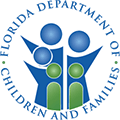Understanding Depression
What does Depression Look like?
There are times in our life when we feel sad or depressed. These feelings are completely normal reactions to difficult life events such as a loss or disappointment. However, if you are experiencing intense sadness, accompanied by feelings of helplessness, hopelessness, and worthlessness that last for many days to weeks, you may be experiencing a major depressive disorder. For men and women with major depression, their negative mood states significantly interfere with their daily life.
Major depression is a condition that causes persistent sadness, loss of interest in activities you normally enjoy, sleep disturbances, changes in appetite, fatigue, and poor concentration. In addition to day-to-day symptoms, untreated depression can result in long-term physical and psychological problems, making it almost impossible for the individual to maintain their normal routine. Due to the high level of distress and persistent emotional pain, an individual may eventually feel that life is no longer worth living and start having recurrent thoughts of death.
While at the time you may feel helpless and alone, there is hope. Depression is a treatable disorder and there are a number of different intervention options that have proven effective.
Statistics
Statistics on Depression
The lifetime prevalence of major depression for adults in the U.S. has been estimated to be about 25%, with the majority of individuals experiencing more than one episode. The 12 month prevalence rate for adults has been estimated at 7%. Estimates for the presence of the disorder in seniors, children, and adolescents are not considered reliable since the disorder is often undiagnosed and untreated in these populations.
Women are 1.5 to 3 times more likely to be diagnosed with major depression than men. However, this may be a reflection of the fact that women are more likely to report symptoms of depression than men. It is also possible that depression in men may not be recognized due to differences in the way it is experienced in men and women. For example men often display more external behaviors such as anger outbursts, irritability triggered by minor events, physical agitation, and frustration. Women are more likely to internalize negative feelings and therefore are more likely to hold everything in.
Causes of Depression
What are the Causes and Risk Factors of Depression?
The overall scientific consensus is that depression does not have a single cause, but is the result of multiple factors that may need to occur concurrently. An individual’s genetics, life experiences, sex, age, brain chemistry, hormone levels, level of substance abuse, and the existence of another illness all play a role in the development of depression.
Genetic: It has long been recognized that depression tends runs in families, which suggests that there is a genetic link to this disorder. The idea is that multiple genes interacting with one another in special ways likely contribute to the various types of depression that run in families. This means that if you have a relative who has suffered from depression you are more likely to develop the disorder yourself. While evidence shows there is some sort of genetic link, an actual “depression” gene has yet to be discovered.
Physical: Research has shown that there are differences in the brains of individuals who have depression. For example, those diagnosed with depression tend to have a smaller hippocampus when compared to other individuals. With a smaller hippocampus, this means that there are less serotonin receptors in the brain. Serotonin is a neurotransmitter that is responsible for communication between the nerves and the brain and body. A disruption in the process could be responsible for causing depression. It has also been hypothesized that the neurotransmitter norepinephrine is also involved in the development of depression.
Environmental: There are a number of different factors that occur than can increase the chances that an individual will develop depressions. For example, individuals who have grown up in an abusive household or with a lot of family conflict have been shown to more likely suffer from depression. Other life circumstances such as the loss of a loved one, losing a job, or getting divorced can all cause depression.
Risk Factors:
- Chronic pain
- Certain medications
- Serious illness
- Social isolation
Signs and Symptoms of Depression
Learn More About the Signs and Symptoms of Depression
There are a diverse set of symptoms that may be experienced by those with major depression. Due to individual characteristics and circumstances, different people diagnosed with depression may exhibit very different symptom patterns. Symptoms of the disorder include:
Behavioral Symptoms:
- Withdrawing from friends and family
- Moving faster or slower than usual
- Sleeping too much or too little
- No longer engaging in activities once enjoyed
Physical Symptoms:
- Weight loss or gain
- Sexual dysfunction
- Persistent headaches
- Stomachaches or digestive problems
- Exhaustion
Cognitive Symptoms:
- Trouble concentrating or paying attention
- Problems remaining focused
- Inability to solve problems or make decisions
- Frequent thoughts of suicide
- Aches and pains in body
- Problems with memory
Psychosocial Symptoms:
- Extreme sadness
- Feeling a sense of helplessness
- Feeling worthless or incompetent
- Nervous tension and agitation
- Unnecessary worrying
- Excessive or inappropriate self-blame or guilt (may be delusional)
- Loss of motivation
- Loss of important relationships
Effects of Depression
Understanding the Effects of Depression
The long-term effects of untreated depression are going to vary among individuals and other life circumstances. Some of the more frequently experienced effects may include:
- Loss of important relationships
- Negative health problems
- Acts of self-harm
- Suicidal ideation or actions
- Loss of self-confidence
- Loss of social support network
- Work or school problems
- Impaired immune system functioning, resulting in illness
Co-Occurring Disorders
Depression and other Co-Occurring Disorders
Individuals with major depression are usually struggling with an additional mental illness— in most cases this co-occurring disorder is anxiety. Major depression additionally co-occurs with a variety of other psychological conditions including:
- Substance use and alcohol disorders
- Panic disorder
- Obsessive compulsive disorder
- Anorexia nervosa
- Bulimia nervosa
- Psychosis
- Personality disorders
- PTSD











